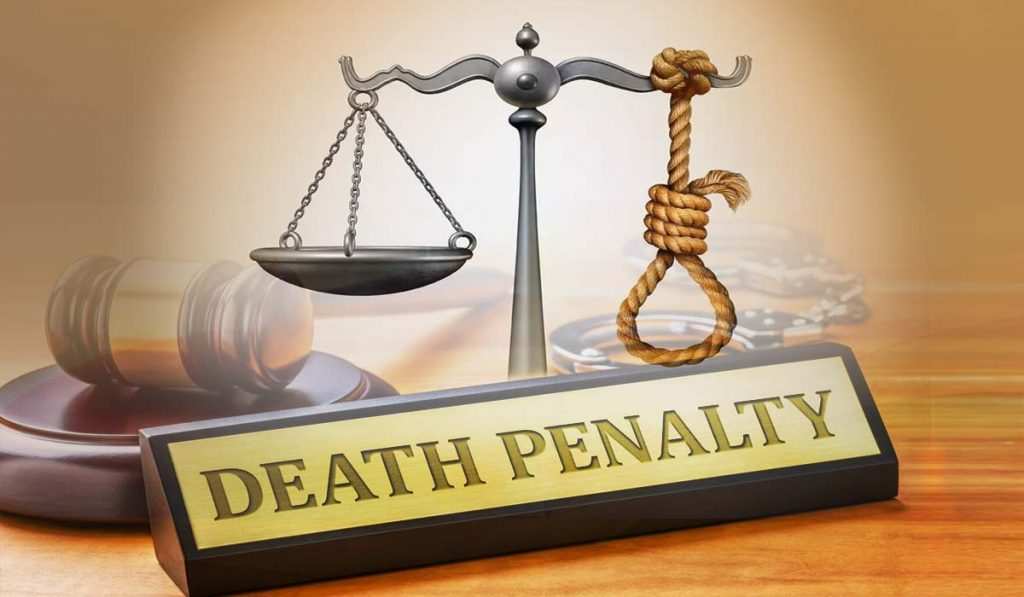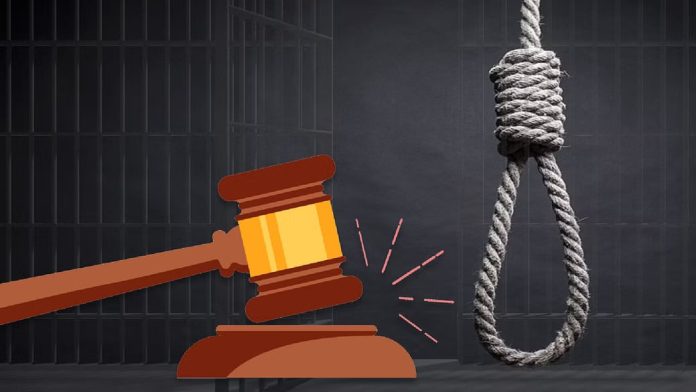- The very mention of capital punishment brings forth the image of a condemned convict being hanged after enduring the process of the rule of law of the land. Of course, as per the Indian Constitution and the law enacted on the matter, any individual sentenced to death means death by hanging. No other options. As you are aware, the death sentence also connotes that the individual must have committed the rarest of rare crimes leading to capital punishment. Yes, several advocates vehemently express their opposition to capital punishment altogether. However, the legislature and the executive have not made any moves in the direction of abolishing capital punishment for people convicted of heinous crimes considered the rarest of rare.

PC: IAS Gyan
- Society needs a definite mechanism in place to ensure credible deterrence for crimes that are considered extremely gruesome, inhuman, and anachronistic in the present times, where civil liberties are quoted as the reasons in the fast-evolving modern-day requirements. However, in line with the Supreme Court’s lament of recent times, it’s worth mentioning that India should have a debate on what can replace hanging when it comes to capital punishment. SC is nudging the government to show willingness to modernize the delivery of the death sentence. SC was hearing a petition to replace death by hanging with lethal injection. This needs some parsing and continuous discussions beyond cases in court.

PC: Business Today
- For the uninitiated, the death penalty has three debates that run concurrently. First, whether capital punishment should be abolished. Second, a restrained and diligent application of the penalty. SC and CJI’s have time and again appealed to HCs to be ultra-careful when sentencing convicts to death. The sentencing itself is harrowing for most convicts, however hardened the criminal. On death row, it is long years of appeals till death is delivered or the sentence commuted. The third debate is on the best or humane way to service the sentence. Neither the debates nor the arguments are new. Any method untried that would inflict death as painless and certain as hanging, but with greater decency and without the degrading/barbarous association, is tainted.

PC: cihrs.org
- Indeed, the argument against this debate is that there’s no humane way; the very decision is troubling. Discussing the best methods is, in fact, an attempt to protect shared values – the natural right to life and the dignity of death. The reality is, so long as the death penalty is on the statute, it must be asked: Is hanging the most certain, quickest, and least painful method with minimum bruising? Should there be options? If so, what? No method is best. The world recoiled when Alabama last year used nitrogen gas asphyxia in a global first as a new mode, claiming death would be instant. Instead, the convict struggled for life for several minutes – nitrogen was on for 15 minutes. Thus, the question of option is not to be sidestepped. A debate must ensue in India.






